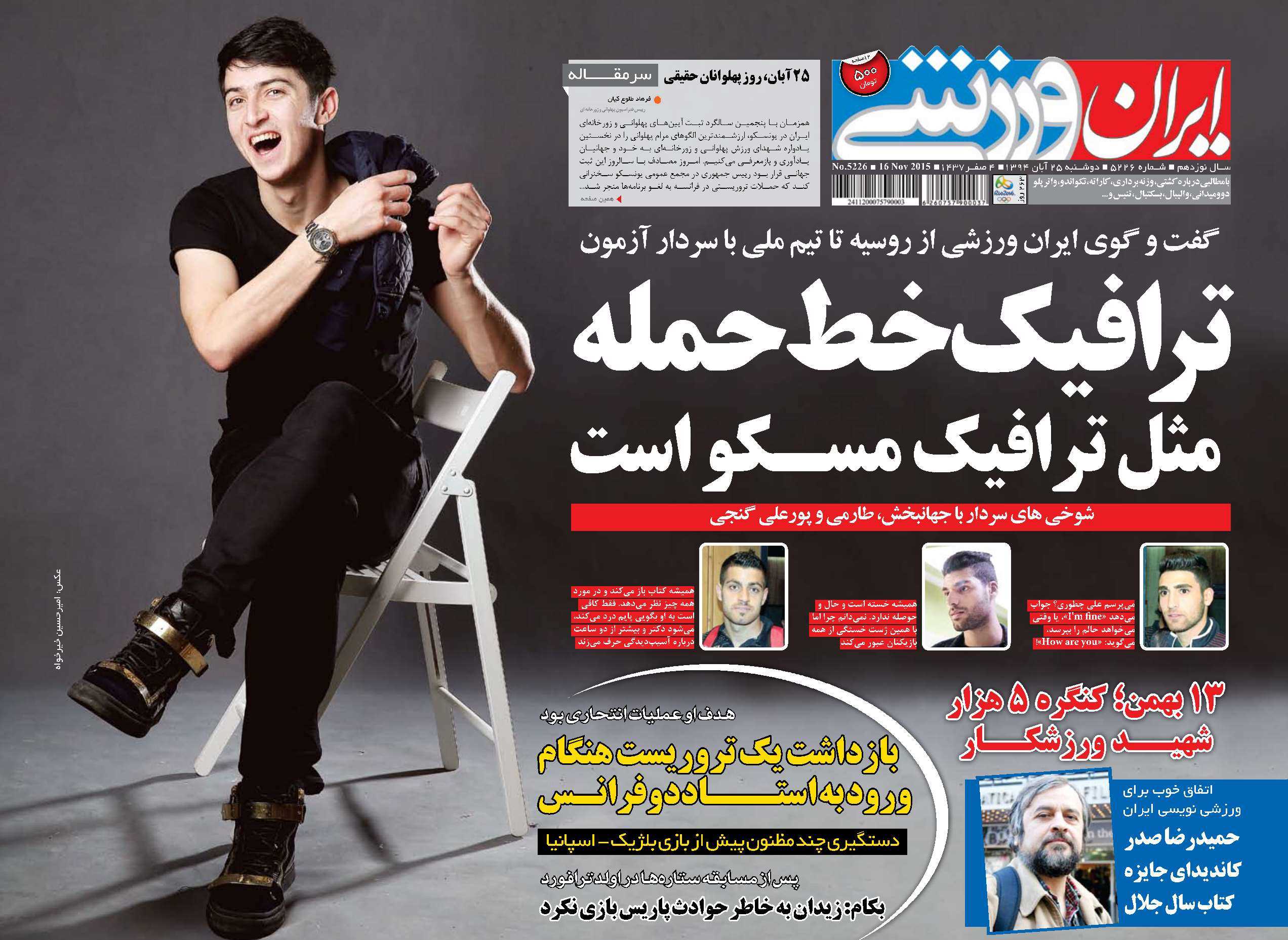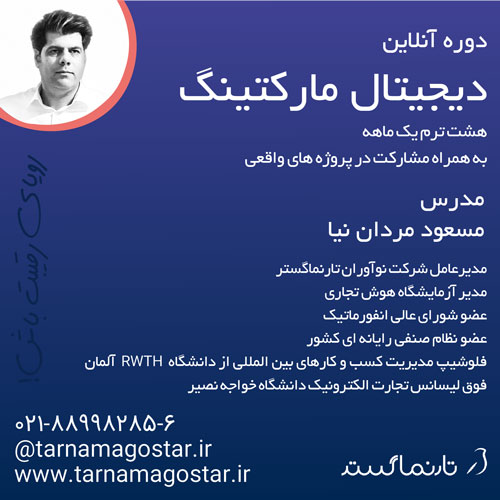عناوین این صفحه
جستجو بر اساس تاریخ
نظرسنجی
شماره : 7054 /
۱۴۰۱ يکشنبه ۲۲ خرداد
|
|
تمام بضاعت ما همین تیم دوم بود
لغو پیاپی دیدارهای تدارکاتی تیم ملی از سویی و بیمیلی سرمربی تیم ملی برای بازیهای بزرگ از سوی دیگر موجب شد بازی امشب با تیم دوم الجزایر بشود همه برنامه و تدارکی که فدراسیون فوتبال میتوانست برای تیم ملی فوتبال بزرگسالان ایران در نظر بگیرد.
الجزایر (که به جام جهانی هم راه پیدا نکرده) برای بازی با ما تمایلی به استفاده از ترکیب اصلی خود پیدا نکرد و این بدترین توهینی بود که میشد به بازیکنان ما کرد. دیده بودیم تیمی که به جامجهانی میرود از ساق بازیکنانش حفاظت کند و آنها را در دیدارهای غیر ضروری به میدان نفرستد؛ اما ندیده بودیم تیمی که به جام جهانی نرسیده برای تیمی که یک سهمیه جام جهانی را مال خود کرده، ناز کند و این هم البته به اقتدار و برنامهریزی فدراسیون فوتبال ما برمیگردد.
4 فرصت بازی تدارکاتی در این روزهای فیفا داشتیم و همه را با غفلت سوزاندیم. حالا مانده فقط 3 دیدار تدارکاتی که بعید میدانیم این فدراسیون با این میزان برنامهریزی هنر عجیب و شگفتانگیزی نشانمان دهد.
امیدواریم مدیران بالادستی در وزارت ورزش و بالادستتر فکری به حال اوضاع خراب فوتبال بکنند تا کمی از دغدغهها و نگرانیهای مردم فوتبالدوست کشورمان کم شود. برای شیربچههای تیم ملی آرزوی موفقیت میکنیم و امیدواریم در همه بازیهای پیش رو موفق باشند.
معرفی ۲۰ مربی خارجی به استقلال!
بلافاصله پس از اینکه فرهاد مجیدی از استقلال رفت و مشخص شد این باشگاه برای فصل آینده باید دنبال سرمربی جدید باشد یکسری از مدیر برنامهها که با مربیان خارجی و یا مدیر برنامههای اصلی آنها در ارتباط هستند تکاپوی خود را برای مذاکره و معرفی سرمربی به استقلال آغاز کردند.
طی روزهای گذشته هم چهرههای معرفی شده به استقلالیها برای نشستن روی نیمکت این تیم واقعاً زیاد بوده است طوری که خبرها حکایت از آن دارد که چیزی بالغ بر ۲۰ سرمربی همراه با رزومه کاری به مسئولان مختلف باشگاه استقلال معرفی شدهاند.
البته تقریباً هیچکدام از آنها به طور جدی مورد نظر نیستند و مصطفی آجورلو ترجیح میدهد به اتفاق معاونان و افراد معتمد خویش روند انتخاب سرمربی را جلو ببرد.
البته استقلال چند مربی خارجی را مدنظر قرار داده است ولی آنها نیز از فیلتر مدیرعامل میگذرند و قرار شده هر کدام از نظر آجورلو واجد شرایط تشخیص داده شدند، در دایره هدف قرار بگیرند و مکاتبه با مدیر برنامههایشان آغاز شود. روندی که طی یک هفته گذشته صورت گرفته است.
ایران - الجزایر؛ به یاد مسابقه فراموش نشدنی در آزادی
خاطرهبازی با حریف ۴۱ ساله
بالاخره طلسم دیدارهای تدارکاتی ایران امشب شکسته میشود. تیم ملی کشورمان اولین بازی دوستانه خود پس از انجام مراسم قرعهکشی جام جهانی را برگزار خواهد کرد. بعد از اینکه حریفان خود را در قطر شناختیم، همه بر این باور بودند که اگر تیم ملی به خوبی حمایت شود و دیدارهای تدارکاتی مناسبی برایش فراهم آید شاید بتوانیم به رؤیای صعود از گروه خودمان جامه عمل بپوشانیم ولی مهمترین فرصت برگزاری مسابقات تدارکاتی که خردادماه بود و میتوانستیم در آن ۳ بازی مطلوب انجام بدهیم را به دلایل مختلف از دست دادیم و حالا فقط باید به تقابل مقابل الجزایر بسنده کنیم. دیدار با تیمی که البته پیرامون استفاده از نفرات اصلیاش هم هنوز حرف و حدیث وجود دارد.
سابقه رویارویی ایران و الجزایر به ۴۱ سال قبل میرسد و البته در رابطه با دو مسابقه دو تیم همچنان حرف و حدیثهای زیادی وجود دارد.
رویارویی عجیب
ایران و الجزایر اولینبار تیرماه سال ۱۳۶۰ به مصاف یکدیگر رفتند. مسابقهای که در کشور لیبی برگزار شد و الجزایریها توانستند با یک گل ما را شکست بدهند. البته این دیدار در تاریخ فیفا به عنوان مسابقه رسمی ثبت نشده چون فدراسیون فوتبال کشورمان در آن مقطع مدعی شده بود تیمی که فرستاده شد، تیم منتخب نیروهای مسلح کشورمان بود نه تیم ملی! این ماجرا بالغ بر ۲۰ سال بعد هم دوباره به شکلی دیگر تکرار شد.
ما اسفند سال 1380 در تورنمنت چهارجانبه به میزبانی مراکش به مصاف الجزایر رفتیم و بازی در وقتهای قانونی و اضافه با تساوی بدون گل خاتمه پیدا کرد اما توانستیم در ضربات پنالتی آنها را شکست بدهیم. ایران مسابقه را برد اما از این بازی هم به عنوان تقابل رسمی دو تیم یاد نمیشود چون ظاهراً الجزایریها پیش از آغاز تورنمنت مذکور مدعی شده بودند با تیم دوم خودشان به مراکش سفر میکنند.
مسابقه فراموش نشدنی
قطعاً مهمترین و جذابترین بازی ایران و الجزایر به مهرماه سال ۱۳۷۰ برمیگردد. جدالی در چهارچوب رقابتهای جام بین قارهای که آن سال به صورت رفت و برگشت در تهران و الجزیره برگزار شد. ما در مسابقه رفت میزبان بودیم و تیم ملی در یکی از بهترین نمایشهای خود تحت هدایت علی پروین توانست الجزایر را که آن زمان از وجود بازیکنان بزرگی همچون رباح ماجر سود میبرد، در حضور ۱۰۰ هزار تماشاگر با نتیجه دو بر یک شکست بدهد. محمد پنجعلی کاپیتان ارزشمند فوتبال ایران در آن مسابقه برای همیشه با عرصه ملی خداحافظی کرد و مجید نامجومطلق یکی از بهترین نمایشهای تاریخ فوتبال خود را به رخ کشید. صمد مرفاوی هم شب بسیار خوبی را پشت سر گذاشت و توانست هر دو گل ما را وارد دروازه الجزایر کند.
البته در بازی برگشت شرایط طبق تصور ما پیش نرفت و با یک گل شکست خوردیم تا در نهایت الجزایر قهرمان جام بین قارهای شود.
پیروزی به لطف سردار و طارمی
تیم ملی ایران در فروردینماه ۱۳۹۷ هنگامی که خود را برای حضور در جام جهانی روسیه آماده میکرد نیز یک جدال دوستانه با الجزایر برگزار کرد مسابقهای که به میزبانی اتریش برگزار شد و شاگردان کارلوس کیروش توانستند با اتکا بر گلزنی سردار آزمون و مهدی طارمی الجزایر را شکست بدهند. کلاً این دو تیم همواره جدالهای پایاپایی داشتهاند و به احتمال زیاد امشب هم شاهد نبردی نزدیک و پر برخورد خواهیم بود.
داستان عجیب حریفان تدارکاتی تیم ملی
حتی اگر پول بدهیم، بازهم با ما بازی نمیکنند
اگرچه انتقادات زیادی به عملکرد فدراسیون در یافتن حریفان تدارکاتی برای تیم ملی وارد است و بخش زیادی از این نقدها هم درست به نظر میرسد چون اصلاً نمیتوان تصور کرد فرصت ایجاد شده در خرداد ماه به همین راحتی از دستمان رفته باشد ولی برخی مسائل هم وجود دارد که از اختیار مدیران فوتبالی خارج است. یکی از همراهان تیم ملی در اردوی قطر پیرامون مشکلات اخیر میگوید: « ما طی روزهای حضور در دوحه با چند مقام مسئول فدراسیونهای مختلف که تیمشان به جامجهانی راه پیدا کرده پیرامون بازیهای تدارکاتی صحبت کردیم و به این واقعیت مهم رسیدیم که حتی اگر به لحاظ مالی مشکلی هم نداشته باشیم باز نمیتوانیم شرایط برای انجام دیدارهای تدارکاتی را به همین راحتی فراهم کنیم چون رقبایمان میگویند اگر با ایران بازی کنیم با توجه به تحریمهای بانکی برای نقل و انتقال پول دچار مشکل میشویم و عملاً نمیتوانیم از منافع مالی این دیدار استفاده کنیم، روی همین اصل ترجیح میدهیم سراغ حریفانی برویم که چنین مسائلی را نداشته باشند.»
شکست بزرگ آجورلو از آیپیهای فیک
«فضای مجازی» مدیرعامل استقلال!
یادداشت
حمیدرضا عرب
باشگاه استقلال از ید مدیرانش خارج شده و به دست افرادی افتاده که با هشتگسازیهای هدفدار در تلاشند حرف خود را به کرسی نشانده و زمینهساز حضور سرمربی خارجی در باشگاه متبوعشان شوند. خواسته بسیاری از فعالان حقیقی و دروغین در فضای مجازی که توجه عمیق مدیران باشگاه استقلال را به سمت و سوی خود جلب کردهاند، انتخاب سرمربی خارجی است و مدیران استقلال نیز بی آنکه بدانند گزینه مورد نظر این طیف کیست و یا اینکه خودشان گزینهای قطعی را مد نظر داشته باشند، به این سمت و سو در حرکتند و در تلاشند خواسته هواداران را به کرسی بنشانند.
چنبره فضای مجازی بر افکار مدیران باشگاه استقلال به حدی اثر گذاشت که تصمیمگیران باشگاه استقلال در مقابل انتقادهای احساسی علیه «جواد نکونام» که به واقع میتوانست بهترین گزینه برای این روزهای استقلال باشد، تاب نیاوردند و دست این گزینه را برای انصراف از حضور در استقلال باز گذاشتند، در حالی که به واقع اگر مدیران باشگاه استقلال هنر هموارسازی مسیر برای ورود نکونام را داشتند، این مربی که از تجربیات مناسبی برای هدایت استقلال برخوردار است به عنوان اول مرد کادرفنی برگزیده میشد و استقلال از سردرگمی بیرون میآمد.
در روزهای اخیر نامهای متعددی از مربیان خارجی برای حضور در استقلال مطرح شده که تعدد اسامی نشان از بیبرنامگی مدیران استقلال در انتخاب جانشین مجیدی دارد. گاهی صحبت از مربیان بلوک شرق میشود، گاهی از مربیان ایتالیایی سخن به میان میآید و گاهی نیز احتمال حضور مربیان ترکتبار در استقلال را میدهند. این حجم از تشتت آرا برگرفته از فقدان برنامهای از پیش طراحی شده برای روزهای پسا فرهاد است در حالی که مدیران باشگاه استقلال هفتهها قبل از اعلان خداحافظی رسمی مجیدی در جریان ماوقع بودند و میتوانستند با زرنگیهای خاصی زمینه را برای انتخاب گزینه اول خود فراهم کنند اما بیتفاوتی و دست دست کردن در نهایت موجب شد وضعیتی در باشگاه استقلال به وجود بیاید که مدیران افسار تصمیمگیری را به دست فضای مجازی بسپارند و در نهایت خود را در مهلکهای بزرگ ببینند.
اینکه در فضای مجازی طلب مربی خارجی میشود و باشگاه استقلال هم سر تعظیم فرود میآورد کاملاً گویای استیصال مدیران باشگاه استقلال در مقابل فضاسازیها است وگرنه افرادی که خویش را در مدیریت فوتبال باتجربه میدانند، خود را گرفتار آیپیهای فیکی نمیکردند که حتی خودشان هم نمیدانند مربی مورد نظرشان کیست و تنها اقدام به خطدهی برای استخدام مربی خارجی میکنند و شعار «خارجی خارجی» سر میدهند، در حالی که مربی غیر ایرانی دایره عظیم از مربیان خارجی را در بر میگیرد که هیچ تضمینی به موفقیت قطعی آنها در باشگاه استقلال هم نیست؛ کما اینکه تمام قهرمانیهای استقلال در30 سال اخیر نیز با مربیان داخلی رقم خورد و عجیب است که مدیران باشگاه استقلال چرا به سادگی تصمیمگیریهای کارشناسی را به عهده افرادی میسپارند که عموماً توانایی تحلیل و ارزیابی دقیق آینده را ندارند و گاه نیز با اهداف خاصی چنین سیاستی را اعمال میکنند تا شاید در آینده به اهداف تازهای دست یابند.
باشگاه استقلال این روزها عملاً مدیری که از اقتدار کافی برای تصمیمگیری برخوردار باشد ندارد و آنچه در روزهای اخیر رقم خورد نیز کاملاً این ادعا را به اثبات میرساند که آجورلو نیز در مقابل فضای مجازی شکست سختی متحمل شده و حتی نتوانسته حرف خود درباره به کارگیری نکونام را به کرسی بنشاند.
چند مدیر فدراسیون علیه مهدویکیا
مگر ما گفته بودیم دیرتر به ایران برگردد؟
نتایج ضعیف تیم امید در رقابتهای قهرمانی آسیا باعث ناراحتی تعدادی از مدیران فدراسیون فوتبال از مهدی مهدویکیا شده است.
سرمربی تیم ملی امید پس از بازگشت به ایران حرفهایی را مطرح کرد و قرار است در کمیته فنی پیرامون عواملی که باعث ناکامی ما در ازبکستان شد هم صحبت کند. البته با توجه به حمایت مقامات کمیته ملی المپیک، بعید به نظر میرسد مهدویکیا در این مقطع برکنار شود اما تعدادی از مدیران فدراسیون از دست او ناراحت هستند. ظهر دیروز یکی از همین مدیران در واکنش به اینکه تیم امید تدارک خوبی برای مسابقات قهرمانی آسیا نداشت میگفت: «با توجه به فشردگی مسابقات باشگاهی، تمام تیمهایی که در رقابتهای قهرمانی آسیا شرکت کردند طی سه ماه گذشته حداکثر برای برگزاری ۴ بازی دوستانه فرصت داشتند اما تیم ما فقط دو مسابقه برگزار کرد و دلیل آنهم ماجراهایی بود که به واسطه تصمیمات خود آقای مهدویکیا ایجاد شد. ما تیم ملی امید را برای انجام دو مسابقه تدارکاتی به عراق فرستادیم. در عید نوروز هم میتوانستیم دو بازی دیگر برای آنها فراهم کنیم اما خود آقای مهدویکیا اسفندماه آنقدر دیر به ایران برگشت که عملاً فرصت برای فراهم کردن دیدارهای دوستانه در فروردین از دست رفت. ما به مهدویکیا نگفته بودیم دیرتر بازگردد اما ایشان خودش تعلل کرد و مجال بازیهای دوستانه از کف رفت. »
تمجید بلماضی از بازیکنان تیم ملی ایران
الجزایر، حریف زخم خورده
الجزایر، حریف امشب تیم ملی خیلی دوست داشت که مثل ایران یکی از تیمهای حاضر در جام جهانی قطر باشد. الجزایر که با تیم پرستارهاش در سال 2019 قهرمان آفریقا شد، در پلیآف جام جهانی بازی دراماتیکی مقابل کامرون داشت و با گل دقیقه 118 احمد طوبی در آستانه صعود بود، ولی نتوانست در برابر تماشاگرانش از این برتری محافظت کند و با گل دقیقه 124 چوپو موتینگ رویاهایش بر باد رفت. الجزایر در بازی رفت به برتری یک بر صفر رسیده بود، ولی در خانه دو بر یک باخت تا جایش را به کامرون بدهد.
جمال بلماضی بعد از این بازی مصاحبهای جنجالی علیه داور گامبیایی بازی برگشت داشت و معتقد بود که او با گرفتن وقت اضافه بیش از اندازه عامل حذف تیمش بوده. فدراسیون فوتبال الجزایر حتی معتقد بود که این بازی باید تجدید شود، ولی فیفا با چنین درخواستی مخالفت کرد تا یاران ریاض محرز در حسرت جام جهانی باقی بمانند.
الجزایر سرانجام به قطر سفر کرد، ولی نه برای جام جهانی و قرار است امشب بازی دوستانهای با تیم ملی ایران داشته باشد. بلماضی در روزهای گذشته در مقدماتی جام ملتهای آفریقا دو بازی داشت و توانست اوگاندا و تانزانیا را با نتیجه دو بر صفر شکست دهد. بلماضی بازی امشب با تیم ملی را فرصتی برای محک زدن بقیه بازیکنان تیمش دانست و گفت: «برگزاری بازی سوم برای من اهمیت زیادی داشت. پیدا کردن حریف سخت بود، چون تیمهای اروپایی درگیر لیگ ملتها هستند و اکثر تیمها برای جام جهانی آماده میشوند. خیلی خوشحالیم که توانستیم یک حریف تدارکاتی پیدا کنیم.»
او درباره تیم ملی اضافه کرد: «ایران تیم خیلی خوبی است و به حضور در جام جهانی عادت دارد. این تیم هماهنگی بالا و ساختار بازی مشخصی دارد. من ایرانیها را خیلی خوب میشناسم. آنها قدرت بدنی خیلی بالایی دارند و بازیکنان باتجربهای هستند. آنها تغییرات زیادی نداشتهاند. انتظار میرود که بالا بازی کنند و بخواهند ما را تحت فشار قرار بدهند. آنها حدود ده روز است که اینجا هستند و با شرایط جوی هماهنگ شدهاند.»
بلماضی در پایان گفت که میخواهد به تعدادی از بازیکنان ذخیره تیمش میدان بدهد: «هرچند ما دو بازی رسمیمان را بردیم، ولی اگر این بازی نبود احساس میکردم که مأموریتمان نیمهتمام مانده، چون نمیتوانستم به همه بازیکنانم فرصت بازی بدهم. من این بازیکنان را در تمرینات دیدهام و حالا میتوانم عملکردشان را در بازی ببینم. تیم ما با ترکیب جدیدی بازی خواهد کرد و ممکن است ناهماهنگ باشد. البته سعی میکنم تعدادی از زوجهای هماهنگ را در زمین بگذارم، ولی نمیتوانم این کار را در تمام خطوط انجام بدهم. با این حال هدف این است که این بازیکنان در شرایط سختی قرار بگیرند تا تواناییشان سنجیده شود.»
|
|
آدرس مطلب:
آدرس مطلب:
آدرس مطلب:
آدرس مطلب:
آدرس مطلب:
آدرس مطلب:
آدرس مطلب:
|
ویژه نامه | آرشیو
































